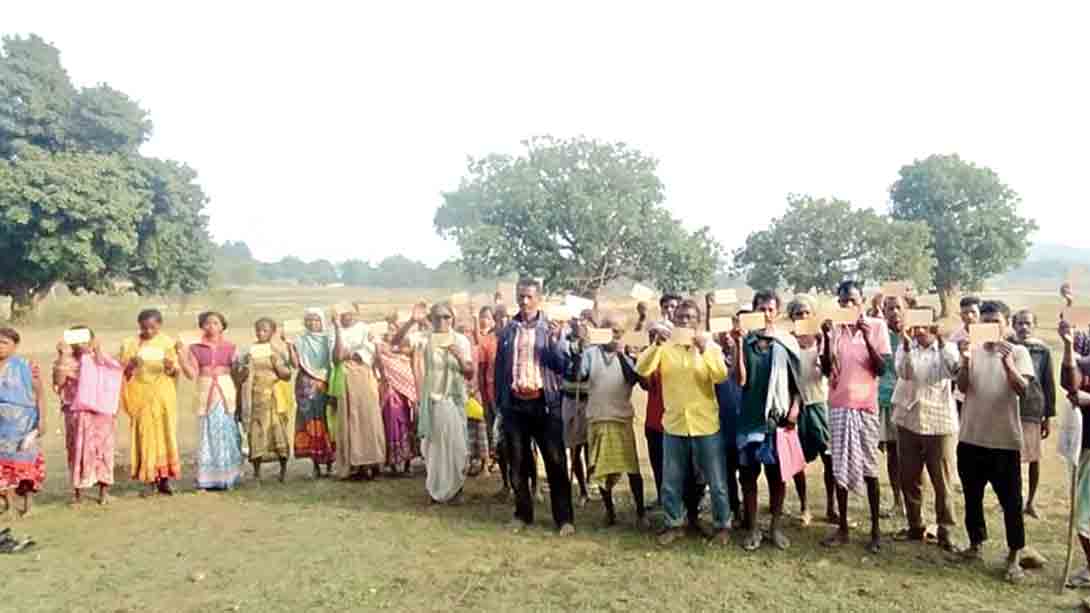The Supreme Court on Tuesday agreed to examine an NGO’s plea that crores of workers were in a crisis as funds-starved states had run up wage dues of Rs 9,682 crore under the Centre’s flagship 100-day job scheme MGNREGA that has witnessed an increase in beneficiaries because of the pandemic.
A bench of Chief Justice N.V. Ramana and Justices A.S. Bopanna and Hima Kohli assured advocate Prashant Bhushan, appearing for the NGO Swaraj Abhiyan, that the matter would be considered in the first week of January.
According to Swaraj Abhiyan, wage dues were piling up under the MNREGA as most states had not received adequate funds under the scheme.
As of November 26, the state governments were facing cumulative wage dues of Rs 9,682 crore and 100 per cent of the funds allocated for the financial year had been exhausted with five months still to go.
The NGO said shortage of funds that was being cited was a gross violation of the law.
It was submitted that the lockdown and the subsequent closure of industries caused massive unemployment in urban areas. This led to large-scale reverse migration to the rural areas and demand for work under the NREGA, putting strain on the village
economy.
According to government estimates, more than 32 lakh migrants returned to six states — Bihar, Jharkhand, Uttar Pradesh, Rajasthan, Madhya Pradesh and Odisha.
Swaraj Abhiyan said that some other estimates suggested that the figure was 45 lakh.
The Centre launched the Gareeb Kalyan Rojgar Yojana under which the migrants who had returned to their native places were also provided job cards under the NREGA.
A total of 7.75 crore households were provided work in 2020-21, an increase of 41 per cent over 2019-20 figures. However, only 6.11 crore households have been provided work till November 15 in 2021-22, a 21 per cent decrease from the previous year.
In June, the Centre had allocated Rs 73,000 crore at the budget estimate stage for the MGNREGA for the 2021-22 fiscal. This was 34 per cent less than the revised estimate of Rs 1,11,500 crore for 2020-21.
The NGO cited a Supreme Court judgment in 2016 on Swaraj Abhiyan’s petition that non-payment of NREGA wages was a violation of Article 23 of the Constitution, which deals with forced labour and prohibition of trafficking.
The court had also directed the Centre to ensure the payment of wages under the MGNREGA within 15 days and see to it that no beneficiary was deprived of food grains under the National Food Security Act.
The apex court has also directed the central government on numerous occasions to carry out social audits to monitor the enforcement of such schemes but they had gone unheeded, the NGO said.
According to the application, the Covid-19 pandemic has caused acute rural distress, leading to a sharp increase in demand for work under the NREGA across the country. The real demand for work from job card-holders is not being accurately registered in the system, denying to them their statutory right to employment or unemployment allowance, Swaraj Abhiyan said.
The petitioner also sought urgent directions from the court to provide 50 additional days of employment a year under the MGNREGA to each household, accurately allow registration of demand for work directly on the NREGA Soft website and issue dated receipts, automatically calculate and pay unemployment allowance at 1/4th the wage rate, and pay for delay in disbursal of wages to workers.











